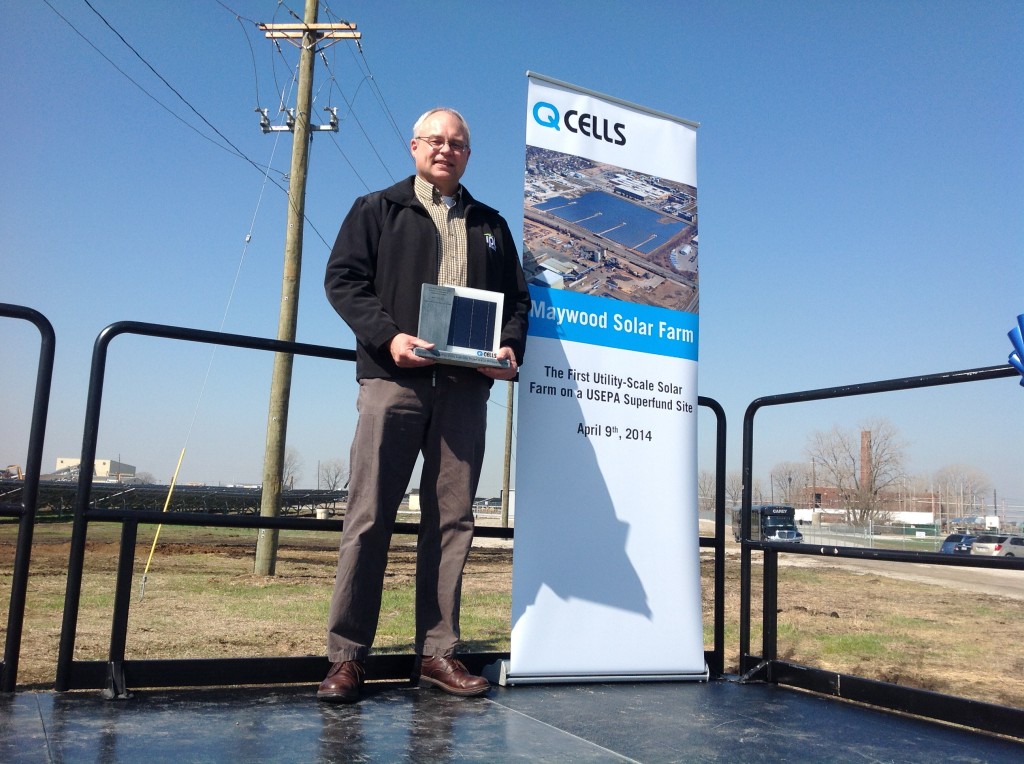IndianaDG just received an update that after a House caucus last night action on SB 310 today (5/21/14) was cancelled. Action expected one week from today. LA
TV ads, arguments a prelude to expected vote on green-energy bill
By Dan Gearino The Columbus Dispatch • Tuesday May 20, 2014 5:27 PM
Both sides in a debate about whether to freeze Ohio’s “green” energy standards pressed their cases today at the Statehouse and beyond, ahead of a House vote that may happen as soon as Wednesday.
Opponents said the proposal, Senate Bill 310, would lead to an increase in utility bills, an increase in pollution and the loss of jobs.
“We are on the verge of making one of the biggest public policy mistakes that we have seen in this state in many, many years,” said Democratic gubernatorial nominee Ed FitzGerald in a conference call.
At the same time, a House panel held a daylong hearing in which about 50 people testified, including the bill’s sponsor, Sen. Troy Balderson, R-Zanesville. He said the freeze is necessary to allow for time to study whether the rules are helping or hurting businesses.
“One thing is clear: There is increasing uncertainty about the effect of the mandates on ratepayers,” he said.
The bill passed the Senate earlier this month.
A group opposing the bill began airing a television ad today that says the bill will “ send us back to the Rust Belt.” The ad is now running the central Ohio media market and may be expanded to other markets, according to the sponsor, Ohio Advanced Energy Economy.
The proposal calls for a two-year freeze in standards for renewable energy and energy efficiency, along with changes to the standards when they resume in 2017. For example, the bill says that utilities would no longer be required to buy half of their renewable energy from in-state sources.
At the hearing, opponents of the bill outnumbered supporters by about three-to-one. Many of the supporters had testified at hearings last week.
“What does a moratorium do to the businesses that provide energy-efficiency services and employ Ohioans who implement the programs?” asked Rob Kelter, an attorney for the Environmental Law and Policy Center, in written testimony. “What business can sit idle for two years and just pick up where it left off?”
Michael McDorman, president and CEO of the Greater Springfield Chamber of Commerce, urged lawmakers to support the bill, saying the freeze “is needed to ensure we are headed in the right direction.”
House Democrats asked Balderson how the bill would affect the state’s ability to comply with upcoming federal rules on power-plant emissions. The long-anticipated rules will likely be released in the next few weeks by the U.S. Environmental Protection Agency.
“I’m not familiar with federally what you’re referring to,” Balderson said. “I was never made aware of that.”
Rep. Mike Stinziano, D-Columbus, asked for Balderson’s view of an alternative plan submitted by a coalition of companies – including Honda, DuPont and Campbell Soup – that would reduce the energy-efficiency standards without freezing them.
Balderson said the plan “did not come across my desk” so he could not comment on it.
dgearino@dispatch.com






